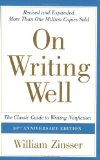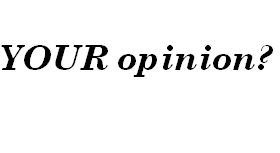If you can’t figure out why your written sentences are too long, then you’ll find a useful tool in this guest post by Joe Croscup. Joe was a wonderful assistant when I taught “How to Write Blog Posts People Will Read” last year. He is also an excellent freelance proofreader, with an eagle eye for catching inconsistencies.
Using Clause Analysis to Fix Your Complex Sentences
By Joseph Croscup
Financial markets are complicated. However, you must not allow your sophistication and knowledge to interfere with clear and concise writing. Understanding your clauses can help.
Common problem in financial writing
Financial writers often make two-part cause and effect statements. They say, because of a factor, the following fact, conclusion, or prediction is true. Therefore, the standard sentence contains at least two clauses. When a writer qualifies the cause or the effect, or both, a sentence is soon cluttered with three or four clauses.
Sentences overpopulated with clauses are unclear and imprecise. The reader confuses the relationship among the parts. Tortuous or excessively long sentences deplete attention and obfuscate meaning even when grammatically perfect.
No one aims to write overly complex sentences. When financial advisors report on the market in real time, it’s easy to see how confusing sentences are drafted. Writers are still formulating their thoughts during composition. However, a timely but muddled report offers little insight.
Solution: Recognize the words that identify new clauses
Your sentences are likely to confuse if you use too many clauses. If you don’t know how many clauses you’ve got, use the list below. The list contains words that act as dividers between clauses. Whenever you see one of these words, you may have started a new clause. However, be careful because some of these words−such as “and,” “or,” and “that”−sometimes play other roles in sentences.
- Coordinating conjunctions−“and,” “but,” “for,” “nor,” “or,” “so,” and “yet”
- Subordinate conjunctions−“after,” “although,” “because,” “except,” “if,” “unless,” “when,” “whether,” “while,” “though,” “unless,” “that”
- Prepositions introducing a clause or phrase−“after,” “except,” “before,” “until,” “concerning,” “according to,” “because of,” “instead of,” “together with,” “owing to”
- Conjunctive adverbs−“however,” “indeed,” “moreover,” “nevertheless,” “therefore,” “thus,” “furthermore,” “then,” “accordingly,” “also,” “besides”
- Transitional expressions−“for example,” “in fact,” “in addition,” “namely”
By memorizing this list−or keeping it handy−you can quickly see if your sentences have too many parts or if they are too complex. Then you know where you need to wield your editor’s pen.
At first, it may be difficult to untangle your sentences. Unlike a juggler, a writer is not always aware of how many plates he has suspended in the air. Knowing these key words will help you to determine relationships and more easily spot problems.






